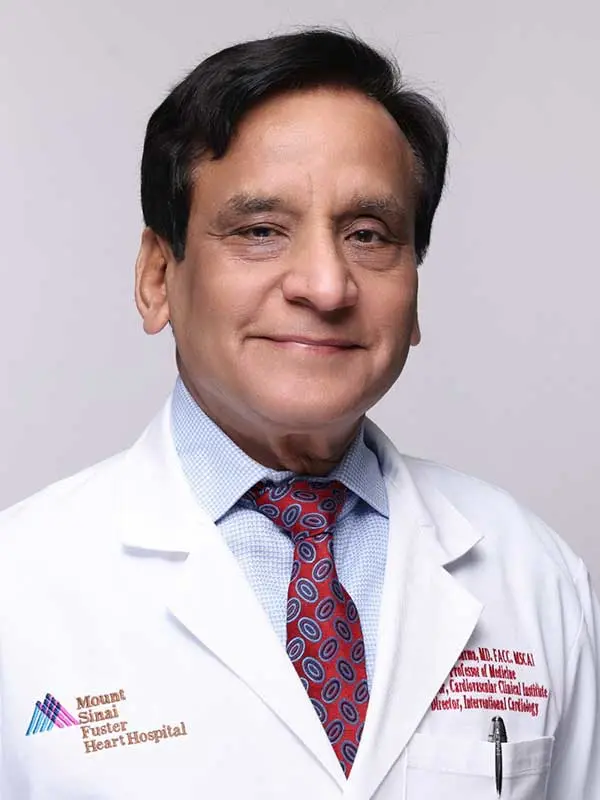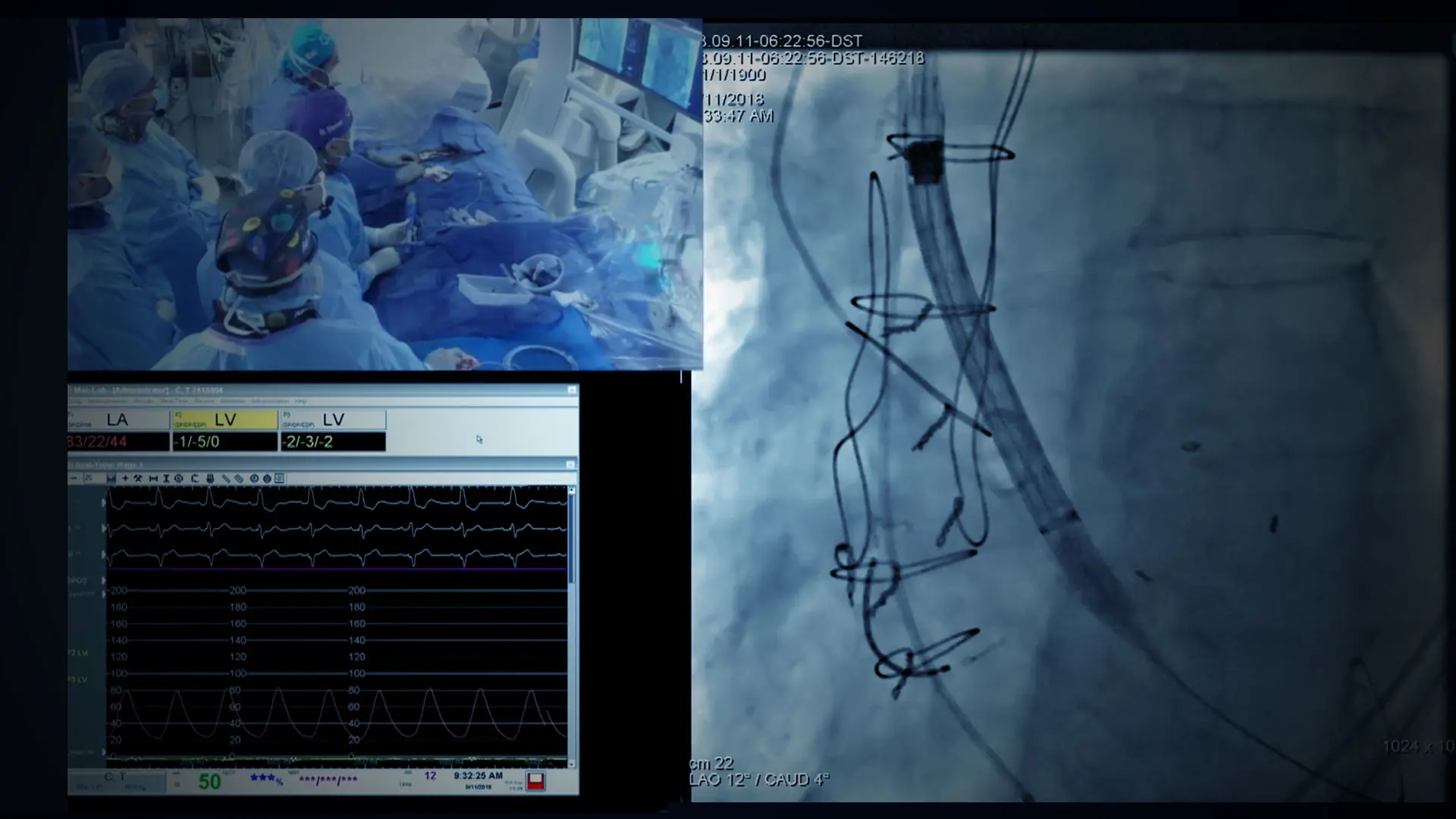The Cardiac Catheterization Laboratory at The Mount Sinai Hospital has received for the third consecutive year the highest three-star rating from the Society of Thoracic Surgeons (STS)/American College of Cardiology (ACC) TVT Registry of Public Reporting. The rating system is one of the most rigorous and highly respected measures for evaluating the quality of transcatheter aortic valve replacement (TAVR) procedures performed by hospitals in the United States.
In the latest reporting, only 22 of 823 TAVR programs nationwide received a three-star rating from the TVT registry. The results further showed that The Mount Sinai Hospital recorded the second highest TAVR volume in New York State in 2022, with 513 TAVR procedures performed.
The STS/ACC TVT Registry monitors patient safety and real-world outcomes related to transcatheter valve replacement and repair procedures—emerging treatments for valve disease patients. Participating hospitals publicly showcase their commitment to continuous quality improvement through voluntary participation in the STS/ACC TVT Registry Public Reporting Program.
“This recognition underscores the commitment of our team to continuous quality improvement and to providing safe, patient-centered, and evidence-based care to our patients.”
Samin K. Sharma, MD
“This recognition underscores the commitment of our team to continuous quality improvement and to providing safe, patient-centered, and evidence-based care to our patients,” says Samin K. Sharma, MD, Director of the Mount Sinai Cardiovascular Clinical Institute, and Senior Vice President of Operations and Quality for the Mount Sinai Fuster Heart Hospital.
The star rating system is based on data collected by the STS/ACC TVT registry, which tracks the outcomes and complications of TAVR procedures from member institutions. Specifically, it assigns one to three stars based on a hospital’s performance across a comprehensive set of quality measures, including the rates of mortality, stroke, bleeding, kidney injury, and valve leakage within 30 days of the procedure.
For patients and their families, STS/ACC ratings provide meaningful information to compare quality among hospitals and to ultimately make informed decisions about TAVR, a procedure that offers hope to many suffering from aortic stenosis who cannot undergo open heart surgery due to frailty, old age, and associated medical conditions. The system also encourages hospitals to improve their quality of care and patient safety by offering them valuable feedback and benchmarking information.
“The results of taking our heart team approach are clear, and the numbers speak for themselves,” says Annapoorna Kini, MD, Director of the Cardiac Catheterization Laboratory. “Our talented surgeons and echocardiographers, prolific publishers in their own right, are there for every patient to ensure that everything is personalized to offer the best outcomes possible. When deploying a valve, I move with confidence knowing of their outstanding preparatory work.”
Featured

Samin K. Sharma, MD
Director of Interventional Cardiology, The Mount Sinai Hospital, and Anandi Lal Sharma Professor of Medicine in Cardiology

Annapoorna S. Kini, MD
Director of the Cardiac Catheterization Laboratory at The Mount Sinai Hospital, and the Zena and Michael A. Wiener Professor of Medicine
